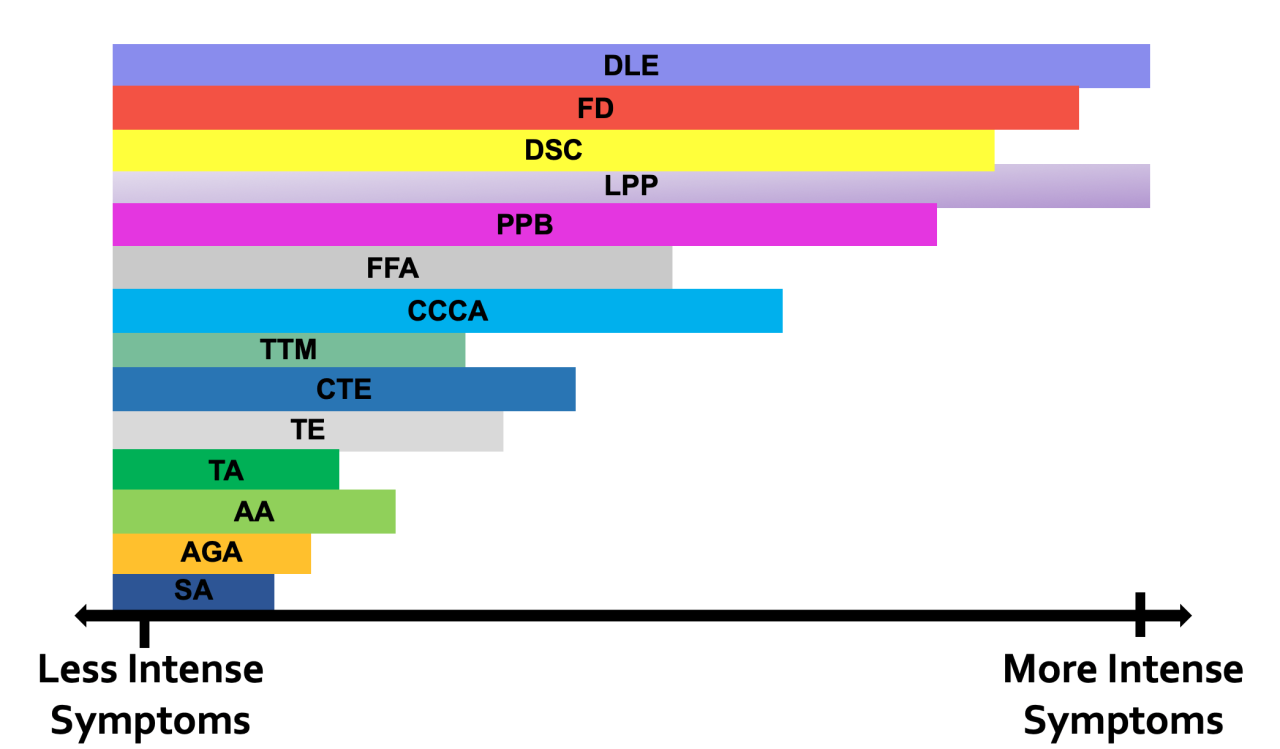Embark on a journey into the world of hair loss, where we unravel the mysteries of caused some hair loss crossword. This comprehensive guide delves into the intricacies of hair loss, exploring its causes, treatments, and preventive measures.
From medical conditions and nutritional deficiencies to styling practices and stress, we delve into the diverse factors that can contribute to hair loss. Discover the role of essential nutrients, the impact of heat styling, and the physiological link between stress and hair health.
Potential Causes of Hair Loss

Hair loss can be a distressing experience, and it can be caused by a variety of factors. Some of the most common medical conditions that can lead to hair loss include alopecia areata, androgenetic alopecia (male-pattern baldness and female-pattern baldness), and telogen effluvium.
Hormonal changes, such as those that occur during pregnancy, menopause, or thyroid problems, can also contribute to hair loss.
Medications
Certain medications, such as chemotherapy drugs, anticoagulants, and antidepressants, can also cause hair loss as a side effect. If you are experiencing hair loss and are taking any medications, it is important to talk to your doctor to determine if the medication may be the cause.
Nutritional Deficiencies and Hair Loss

Nutritional deficiencies can significantly contribute to hair loss. Understanding the role of essential nutrients is crucial for maintaining healthy hair growth.
Iron Deficiency
Iron is vital for the production of hemoglobin, which carries oxygen to hair follicles. Iron deficiency can lead to anemia, characterized by a reduced number of red blood cells, resulting in insufficient oxygen supply to the hair follicles. This can cause hair loss, especially in women with heavy menstrual bleeding or individuals with poor iron absorption.
Protein and Vitamins
Protein is essential for hair growth as it provides the building blocks for hair follicles. Vitamins, such as vitamin C, biotin, and vitamin D, play crucial roles in hair health. Vitamin C aids in collagen production, which strengthens hair shafts, while biotin supports keratin production, a key protein in hair structure.
Struggling with a “caused some hair loss” crossword clue? We’ve got you covered! To help you solve this puzzle, we recommend checking out the fight by adam bagdasarian . This gripping tale of resilience and determination will surely inspire you to conquer any crossword challenge!
Vitamin D deficiency has also been linked to hair loss.
Essential Nutrients for Hair Health
The following table summarizes the essential nutrients for maintaining healthy hair:
| Nutrient | Role |
|---|---|
| Iron | Oxygen transport to hair follicles |
| Protein | Building blocks for hair follicles |
| Vitamin C | Collagen production |
| Biotin | Keratin production |
| Vitamin D | Supports hair growth |
Styling and Hair Loss

Excessive heat styling, such as blow drying, flat ironing, or curling, can damage the hair shaft and lead to breakage and hair loss. High temperatures can cause the hair proteins to denature, weakening the hair and making it more susceptible to damage.
Chemical treatments, like perming and coloring, can also harm hair by altering its structure and weakening it.
Tips for Minimizing Hair Loss Due to Styling Practices
- Use heat styling tools sparingly and on low heat settings.
- Apply heat protectant spray before using heat styling tools.
- Limit the use of chemical treatments, and get them done by a professional.
- Avoid tight hairstyles, such as braids or ponytails, that can put stress on the hair follicles.
- Get regular trims to remove split ends, which can travel up the hair shaft and cause breakage.
Stress and Hair Loss
Stress, a common part of modern life, can have a significant impact on our physical and mental health. One of its lesser-known consequences is hair loss, a condition known as telogen effluvium. Understanding the link between stress and hair loss can help us take proactive measures to protect our hair health.
When we experience stress, our bodies release hormones such as cortisol and adrenaline. These hormones can trigger the sympathetic nervous system, which diverts blood flow away from non-essential functions, including hair growth. Additionally, stress can lead to inflammation, which can damage hair follicles and hinder hair growth.
Types of Stress
Stress can manifest in various forms, each with its unique potential to contribute to hair loss. Some common types of stress include:
- Emotional stress:Personal issues, relationship problems, and financial difficulties can all take a toll on our emotional well-being, leading to hair loss.
- Physical stress:Accidents, surgeries, and chronic illnesses can put our bodies under physical stress, which can also trigger hair loss.
- Environmental stress:Exposure to pollutants, extreme temperatures, and harsh chemicals can cause environmental stress, contributing to hair damage and loss.
Managing Stress
Managing stress is crucial for overall health and well-being, including hair health. Here are some effective strategies for reducing stress and its impact on hair loss:
- Exercise:Regular physical activity is a natural stress reliever. It releases endorphins, which have mood-boosting effects.
- Meditation:Mindfulness practices such as meditation and yoga can help calm the mind, reduce anxiety, and promote relaxation.
- Sleep:Getting enough quality sleep is essential for overall health, including hair growth. Aim for 7-9 hours of sleep each night.
- Social support:Talking to trusted friends, family, or a therapist can provide emotional support and help reduce stress levels.
Hair Loss Treatments

Hair loss treatments aim to address the underlying causes of hair loss and promote hair growth. Several options are available, each with its benefits and side effects.
Minoxidil, Caused some hair loss crossword
- Minoxidil is a topical medication applied to the scalp.
- It stimulates hair growth by increasing blood flow to the hair follicles.
- Potential side effects include scalp irritation and unwanted hair growth in other areas.
Finasteride
- Finasteride is an oral medication that inhibits the production of dihydrotestosterone (DHT), a hormone that contributes to hair loss.
- It is effective in preventing further hair loss and promoting hair regrowth in some individuals.
- Potential side effects include decreased libido and erectile dysfunction.
Hair Transplantation
Hair transplantation involves surgically removing hair follicles from a donor area and transplanting them to the balding area.
It is a permanent solution for hair loss, but it can be expensive and time-consuming.
Prevention and Management of Hair Loss

Taking proactive steps to prevent hair loss and effectively managing it when it occurs can help maintain healthy hair and minimize its impact on self-esteem.
Preventive Measures
- Maintain a Nutritious Diet:Ensure a balanced diet rich in vitamins, minerals, and protein, which are essential for hair growth.
- Proper Scalp Care:Keep the scalp clean and healthy by washing it regularly with a gentle shampoo. Avoid harsh chemicals or excessive styling practices that can damage hair.
Management Strategies
- Choose Appropriate Hairstyles:Opt for hairstyles that minimize tension on the hair, such as loose braids or ponytails, to prevent breakage.
- Use Hair Loss Concealers:Utilize hair loss concealers, such as hair fibers or volumizing shampoos, to temporarily disguise thinning areas.
- Seek Professional Advice:If hair loss persists or becomes significant, consult a healthcare professional to determine the underlying cause and explore appropriate treatment options.
FAQ Corner: Caused Some Hair Loss Crossword
What are the most common medical conditions that can cause hair loss?
Androgenetic alopecia (male-pattern baldness), alopecia areata (patchy hair loss), and telogen effluvium (temporary hair loss due to stress or illness) are among the most prevalent medical conditions linked to hair loss.
How does stress contribute to hair loss?
Stress can trigger the release of hormones that disrupt the hair growth cycle, leading to temporary or permanent hair loss. Managing stress through techniques like exercise, meditation, or therapy can help mitigate its impact on hair health.